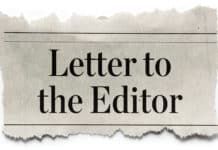By Joan Katen
I believe we can heal the rancorous divide in our country and between our political parties. How can we do it?
Many of the things that I believe will help our country to heal have been mentioned before. I have just listed them here as a plan of action.
- Lobbyists have undue influence on our government. A friend who was in charge of congressional research at the Library of Congress once said to me “I see newly elected congressional representatives come to Washington idealistic and wanting to do a good job. Then the Lobbyists get to them. “They often become swayed by the money, and other perks offered to them. Do they then vote their consciences? Do they then vote for what is best for their constituents? What if we limit the influence of lobbyists? One way is to strictly limit the amount of money they can give to Congressmen and women. Or we can prohibit money other than public monies to be given to candidates. Public financing of elections may be the way.
- What if we had term limits for all congressional representatives? There is no reason that in our citizen- lead democracy must always have the same leaders entrenched in Washington, many amassing money and power- as other talented people with good ideas and fresh viewpoints stand aside without a chance to show what they can do.
- What if we opened the doors of public service so that people without enormous sums of money could have a chance to run for congress? Why don’t more talented people run for political office? One reason is money- since there are few limits on campaign spending you have to have billions to blitz the airwaves for months and months. Also, what if we limit the length of campaigns and use public funds only, funds that are doled out fairly to all candidates. Also the Media scrutinizes the backgrounds and families of candidates to such a degree that many do not want to expose themselves or their families to that scrutiny and or negative publicity. It’s fine if they find someone has done something truly offensive, but everything from third grade on – we probably don’t need to know. The media should be circumspect in what they print. By the end of our long drawn out campaigns- everyone is made to look unworthy of public office. What if mud-slinging was looked upon with disgust and people who used that tactic would lose votes?
- What if we develop a National Training Policy for Police that includes stringent psychological testing, sensitivity training inter- culturally and inter-racially, as well as training in Non Violent Conflict resolution? I am sure the Police of this country who are asked to do everything from mediating domestic disputes to catching thieves and protecting our neighborhoods would really appreciate some extra training. Their job is difficult and dangerous. Why not make it easier for them?
- What if we revamped the tax code so that Warren Buffet will pay more taxes than his secretary – instead of less?
- We if we develop a proactive program to train people whose jobs may be be phased out in the future? – An example would be coal mining. Train them in different levels of Green and tech jobs.
- We if we revamp our educational system to ensure that children in less advantaged areas of the country have the same computers and tools to succeed as those in the more advantaged areas -as the technological age progresses?
- What if with these changes young people begin to look at Political Service as an honor-the word politician should not be a dirty word eliciting frowns? We should have College Courses in Leadership and Communication.
- What if we had a world view that looks at conflicts and world problems justly- and we gained a reputation as a fair thoughtful broker?
- What if we do our part to strengthen International Organizations and share responsibilities, ideas, and financial burdens with our allies?
- What if we saw each other as citizens of the United States and really listened to each other- giving credence to each other’s ideas and did what it seems we’ve forgotten how to do-compromise for the good of our democracy?
Joan Katen is a Professor of Political Science and Peace and Justice Studies
and Moderator of The Foreign Policy Associations Great Decisions Program





